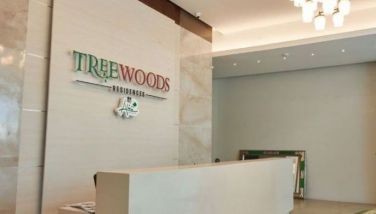2021: Be more digital, agile and volatile
The year is new - and there is great hope that life will return to normal in the course of 2021 and that a return to previous habits is possible. When, how and where first - nobody knows yet. And what will we perceive as normal in the future?
We have already lived and worked in corona mode for nine months, and many things will change permanently, especially in the world of work. Home office, digital working methods, agile methods: what remains, what changes, what works?
We are experiencing an innovation dynamic that has never been seen before: work processes, products, services and business models are being reinvented. Everything is becoming more digital, more agile and even more volatile.
In terms of the work of the future, however, digitalization does not just mean the use of new technologies. Only in combination with a modern organizational structure and work organization as well as qualified and motivated employees do new technologies unleash their full potential.
The scope for design is immense: virtualization, robotics, learning systems and quantum computing mean that work statuses and company processes will in future be mappable, transparent, largely automatable and feasible at a previously unknown speed. People and technology will interact in a much more ubiquitous manner and will substantially change the way we work.
Due to the progress in the field of artificial intelligence, technical systems are becoming increasingly clever. You can make decisions yourself and work increasingly autonomously. The use of digital assistants and the use of process automation in knowledge and production work supports employees, for example via augmented reality, and enables them to learn and carry out new work content. Modern technologies make these functions available for globally distributed teams.
More than ever, it is becoming clear that digitization will be decisive for more resilient forms of value creation and work in the future. The digitalization push will have a lasting effect and massively strengthen the competitiveness of innovative companies.
The workplace of the future is an arrangement of different workplaces in different locations that can be adapted to individual needs. Four components can be combined:
First: the company office, which is not becoming less important but more important, but with a different function - as a place of exchange, personal interaction and social embedding; as the place where a company gets a color, a smell, a shape.
Second: the home office. Studies show two main advantages for employees: there is no commute, and you can work at home with more peace and quiet and fewer interruptions (provided you keep the rest of the family under control).
Third: a flexible workplace in a co-working space. Unlike at home, where there are often no really favorable working conditions and there is a risk of isolation, coworking spaces not only offer a reasonable office infrastructure, but also community. I still believe that community is and will remain important.
And fourth: mobile work in places that are not primarily places of work - meeting on the train, preparing for the next appointment in the café or, why not, team meeting while walking.
The workplace of the future is within one’s grasp, but not a sure-fire success. Work has to be reorganized and regulations have to be adapted. Companies have to rethink, employees have to be trained and empowered. But in the end everyone could have the job they need and want - that would be great.
I believe that a key question is whether leadership will change at all levels. The skills required for digitization can only be dynamically developed further if the work environment allows it. This means, for example, that employees must be involved in future projects.
Above all, the new way of working will be flexible and independent of location - in the home office, in the coworking space, in the office or anywhere else. In science, the term “Activity-Based Flexible Office” has been used for this for several years. This way of working fits in perfectly with the “VUCA” world, because it can be flexibly adapted at any time.
The acronym, which stands for Volatility, Uncertainty, Complexity, Ambiguity, has never been more meaningful than it is today: In an increasingly complex world that is constantly changing, past experiences are becoming less relevant for shaping the future. Security is lost - and the demands on the individual grow.
Every employee faces new tasks: The elimination of external structures or frameworks means that they have to organize themselves more strongly: they have to know how much work they can do in what time and at what time of the day they tackle their tasks. Above all, this requires the ability to self-reflect.
Conversely, this does not mean that companies should now simply shift responsibility onto their employees. In this new situation, “help for self-help” and mutual support are required, for example through group exchanges or coaching.
And so the real office will also gain in importance for everyone in the future. Even if this claim seems a bit paradoxical, I am convinced that it must become a high-quality place that enables lone fighters from the home office to collaborate with high-quality technical equipment and also experience a real sense of togetherness. This is the only way to achieve a new normal.
Am I dreaming? I need your feedback regarding the ‘new normal’. Please email me at [email protected]
- Latest





















